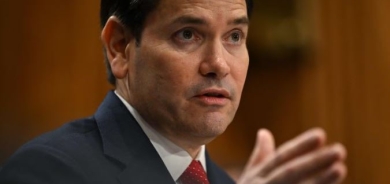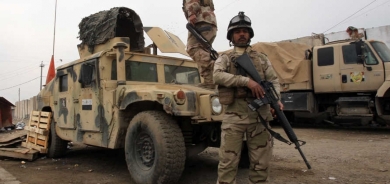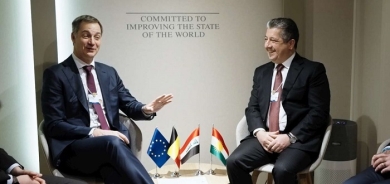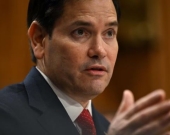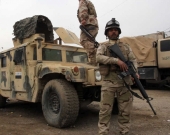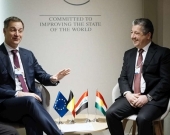Is Kurdistan the Next Boom Town?

LONDON - As major Western companies pull their employees out of Iraq, adventurous British entrepreneurs are eyeing Kurdistan as a golden opportunity. While there are scores of bombings in Baghdad, Kurds living in the only peaceful part of Iraq are busy buying cars.
“Range Rover’s Vogue model is sold out,” British expat John Downe tells a crowded room of business people gathered at the London offices of British Expertise, a not-for-profit international British business organization. They recently hosted a workshop on doing business in Kurdistan, with members of Kurdistan’s British business community providing insight about the local market.
Downe is spreading the gospel that for pioneers ready to take a bit of risk, there could be gold in the hills of Kurdistan. After several years living in Bahrain, Downe visited Erbil two years ago, where he discovered an opportunity to in hiring out serviced offices.
“ I walked the streets, I talked to a lot of businesses, accountants, lawyers and so on and it was clear to me there was a huge market gap. There's not much quality office space available and certainly nowhere where you can walk in and just start work immediately.”
A lease is a legal requirement for registering businesses in Kurdistan, so even small offices are necessary. Downe says typically, local landlords require a year’s rent paid up front, which is why his serviced offices with flexible contracts make better sense for foreign firms.
“We’ve got 26 offices, six are occupied and a lot of them are virtual office clients. Some are there just for registration purposes; others are working abroad and will convert to a fully-serviced office in due course.”
Downe cites impressive GDP numbers for Kurdistan: an increase of 12 percent in 2012, and up 8 percent last year. Consumer demand is on the rise, and hotels are occupied. That kind of growth, coupled with laws allowing 100 percent foreign ownership is part of the attraction. Architect Jonathan Wilson works for a multi-disciplinary design firm with offices around the world, but none in Kurdistan – yet.
“I'm very interested in developing parts of the world where countries are trying to do something different or investing in social infrastructure. We see that as an opportunity. I'm also interested in knowledge transfer, working with people who are trying to learn new skills. What's unique about Kurdistan is the sense of identity in the emerging nation, so it sounds very inspiring.”
But the panel’s insider knowledge helps Wilson remain realistic about potential pitfalls.
“There are some quality issues in construction,” Wilson told Rudaw. “We design buildings with an expectation that construction workers can translate what we draw and that may not be the case. In the Middle East, there's been 30-40 years of Western construction, so if you look at the buildings they've put up in Dubai and Qatar, they can build very sophisticated buildings, albeit with a little external help. What I'm seeing in Kurdistan is things need to be a little simpler and adapted to local capability, but that's not a problem; it’s interesting.”
Downe also warns about Kurdistan’s basic banking system, suggesting entrepreneurs maintain foreign bank accounts and come prepared for a mostly cash society.
One of the pros, Downe says, is Kurdistan’s pool of labor. With a young Diaspora from the UK, France, Germany, Sweden and the Netherlands, Western-educated and multi-lingual staff isn’t hard to come by.
But for many, the real obstacle is separating Kurdistan from the rest of Iraq.
Kurdistan’s government representative to the UK, Bayan Sami Abdul Rahman, is upfront about the tendency to lump Kurdistan with Iraq.
“The challenge of being part of Iraq has always been there. One of the main reasons we encourage British companies to visit Kurdistan first, is so that they can see for themselves it's peaceful, with a booming economy and stability. It’s very hard to get people to invest in something they know very little about, so we encourage people to start by coming here to trade first.”
Rahman says the environment could be lucrative for project management and design engineering firms to help further Kurdistan’s infrastructure development.
Erbil’s international airport, Rahman told Rudaw, is a good example of a British design engineering company successfully partnering with a Turkish company to build it.
Downe is optimistic other intrepid Brits will follow his lead. He has established the British Business Group in Kurdistan and already has 50 members. Now, Downe says, if only someone could build an affordable, sociable and sizeable swimming pool in Erbil, he could really sell it.
Rudaw


